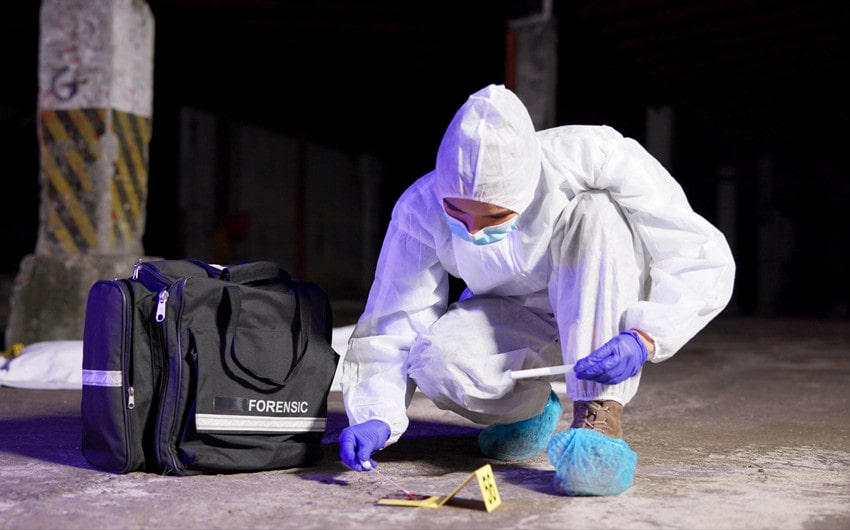25 Jobs in Law Enforcement That Aren’t Police Officers
When you think of law enforcement, the image that probably comes to mind first is a uniformed police officer patrolling the streets. But the field of law enforcement is far broader than that. In fact, many essential roles help maintain public safety, enforce laws, investigate crimes, and support justice—without ever requiring you to be a police officer.
If you’re interested in a law enforcement career but don’t see yourself wearing a badge or chasing suspects, you’re not out of options. Here are 18 rewarding and impactful law enforcement jobs that aren’t police—but are just as vital.
1. Crime Scene Investigator (CSI)
CSIs are responsible for collecting, documenting, and analyzing physical evidence at crime scenes. They don’t typically make arrests, but their work is crucial for solving crimes.
2. Forensic Scientist
These professionals work in laboratories analyzing evidence like blood samples, fingerprints, or DNA. Their findings help build cases and are often presented in court.
3. Probation Officer
Probation officers monitor individuals who’ve been released into the community instead of going to jail. They help offenders reintegrate while ensuring they follow court-mandated guidelines.
4. Parole Officer
Similar to probation officers, parole officers supervise offenders released from prison on parole. They track progress, help with reentry, and prevent reoffending.
5. Border Patrol Agent
Working for U.S. Customs and Border Protection, these agents monitor and secure national borders. Their job focuses on preventing illegal immigration, trafficking, and terrorism—not city policing.
6. Correctional Officer
Correctional officers work in jails or prisons, ensuring the safety and order within detention facilities. They supervise inmates and maintain discipline, but don’t patrol the streets.
7. Federal Agent (FBI, DEA, ATF, etc.)
Federal law enforcement agencies like the FBI, DEA, and ATF have agents who investigate complex crimes—ranging from terrorism to drug trafficking. Their work often involves intelligence, analysis, and collaboration, not patrol duty.
8. Private Investigator (PI)
Licensed PIs conduct independent investigations for clients. They may research fraud, infidelity, missing persons, or civil matters. While they lack arrest powers, their findings often assist legal proceedings.
9. Crime Analyst
These professionals use data to identify crime patterns and trends. They help departments deploy resources more effectively, prevent crime, and support investigations.
10. Evidence Technician
Also called property technicians, these individuals catalog, preserve, and store evidence collected during investigations. Their precision ensures chain-of-custody integrity.
11. Court Bailiff
Bailiffs maintain order and security in courtrooms. They ensure that proceedings go smoothly, protect the judge and jury, and enforce courtroom rules—without investigating crimes.
12. Victim Advocate
These professionals provide emotional support, resources, and guidance to crime victims. They help victims understand their rights, navigate the legal system, and heal.
13. Fish and Game Warden
Wardens enforce laws related to wildlife, fishing, and hunting. They often patrol natural areas and protect endangered species. While they are law enforcement officers, their jurisdiction is ecological.
14. Transportation Security Officer (TSA)
Working in airports and transit systems, TSA officers screen passengers and luggage for security threats. Their work focuses on public safety and homeland security—not community policing.
15. Fraud Investigator
Often working for government agencies or private companies, fraud investigators research cases of financial deception, identity theft, or insurance fraud. They use interviews and data analysis to uncover criminal behavior.
16. Customs Agent
Customs agents inspect goods, people, and luggage entering a country. They help prevent illegal items like contraband or undeclared imports from crossing borders.
17. Emergency Dispatcher (911 Operator)
Dispatchers answer emergency calls, gather critical information, and coordinate responses. They’re the first link in the chain of law enforcement—without being physically on the scene.
18. Juvenile Detention Officer
These officers oversee young offenders in juvenile facilities. Their role includes supervision, counseling, and behavioral support—not street patrol or arrest duties.
19. Immigration Officer
Immigration officers work to enforce immigration laws, verify legal residency status, and process individuals entering or remaining in a country. They operate at borders, airports, and immigration offices and often collaborate with homeland security teams.
20. Intelligence Analyst
Often employed by federal agencies, intelligence analysts collect and interpret information related to criminal activity, terrorism, or cybersecurity. They work behind the scenes to inform decision-making and prevent threats before they occur.
21. Cybercrime Investigator
Cybercrime investigators specialize in online and digital criminal activity, such as hacking, identity theft, ransomware attacks, or digital fraud. They often work with law enforcement or private security firms to trace digital footprints and recover stolen data.
22. Background Investigator
These professionals conduct deep checks on individuals applying for sensitive jobs, government clearance, or security licenses. They verify education, criminal records, and work history to ensure trustworthy hiring decisions.
23. Security Clearance Specialist
Focused on personnel risk assessments, these specialists determine whether individuals meet the standards to access classified information. They conduct interviews, review records, and coordinate with federal security offices.
24. State Trooper Dispatcher
Working specifically with highway patrol or state-level law enforcement, trooper dispatchers coordinate responses to roadway incidents, accidents, and statewide emergencies. While not on the front lines, they’re essential to swift, organized responses.
25. Asset Protection Investigator (Retail & Corporate)
Common in large retail chains and corporations, these investigators look into internal theft, employee misconduct, and organized retail crime. They use surveillance, audits, and interviews to prevent loss and enforce company policy.
Final Thoughts
Law enforcement is more than patrol cars and handcuffs. Behind every case, there’s a team of specialists—from forensic scientists to analysts—working tirelessly to keep communities safe and justice on track. If you’re passionate about justice but not drawn to the role of a police officer, these careers offer alternative paths filled with purpose, skill, and opportunity.
Whether you’re science-minded, tech-savvy, empathetic, or analytical, there’s a place for you in the world of law enforcement. And no badge is required to make a real impact.






